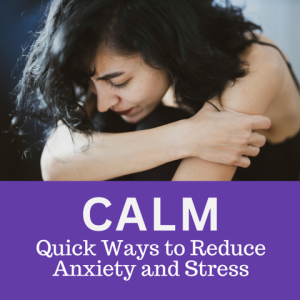When to Seek Help for Anxiety & How to Do It
When to Seek Help for Anxiety & How to Do It
If you’ve been wondering when to seek help for anxiety, it probably means you’ve been experiencing certain symptoms for a while and are considering reaching out for support. As with any mental health challenge, professional guidance can be crucial in managing daily difficulties and uncertainties.
What Is Anxiety?
Anxiety is a complex reaction to perceived or actual threats, manifesting in behavioral, physiological, and cognitive changes. The brain releases adrenaline in response to these threats, triggering the fight-or-flight response. This can occur in social situations or during significant life events. Sometimes, anxiety symptoms can persist long after the initial stressor, leading to physical symptoms like nausea or high blood pressure. Understanding when to seek help for anxiety is crucial in distinguishing between normal worry and an anxiety disorder.
Treatment Options
If you’re unsure when to seek help for anxiety, consider whether your symptoms are affecting your daily life. Consulting with a primary care physician is a good first step. They can identify any potential underlying medical conditions contributing to your anxiety. For more severe cases, a mental health professional, such as a psychiatrist or psychotherapist, can provide specialized care. These professionals are skilled in diagnosing anxiety and offering effective treatment options.
Psychotherapy
In psychotherapy, a therapist works with you to reduce anxiety symptoms. Cognitive Behavioral Therapy (CBT) is particularly effective, teaching methods to manage symptoms and gradually face anxiety-inducing situations. Knowing when to seek help for anxiety can guide you in finding a therapist who specializes in CBT or other relevant therapies.
Medications
Medications can be useful depending on the type of anxiety disorder and any co-occurring conditions. Discussing the benefits and potential side effects with your doctor will help determine if this is an appropriate option for you.
Relaxation Techniques
Stress can exacerbate anxiety symptoms. Techniques such as mindfulness, deep breathing, and progressive muscle relaxation can help manage stress and anxiety. Recognizing when to seek help for anxiety can involve exploring these techniques to see if they alleviate your symptoms.
How to Find Help for Anxiety
Finding the right therapist is a crucial step in managing anxiety. Research potential therapists, consider your therapy goals, and assess your budget and insurance coverage. Personal recommendations can also be valuable, but ensure the therapist’s approach aligns with your specific needs.
By understanding when to seek help for anxiety and exploring the available options, you can take proactive steps toward managing your mental health and improving your quality of life.
Quick Ways to Reduce Anxiety and Stress
About Life Coaching and Therapy
Life Coaching and Therapy (LCAT) is a therapy and coaching practice that transforms our clients lives through our flexible. Multi-technique approach and pleasure-skills training provided by systematically-trained and licensed therapists!
 Get to know our founder and owner, Amanda Pasciucco, (a.k.a. The Sex Healer) PhD, Licensed Marriage and Family Therapist (LMFT), and an AASECT Certified Sex Therapist (CST) that has developed innovative therapy programs and therapy videos that get results.
Get to know our founder and owner, Amanda Pasciucco, (a.k.a. The Sex Healer) PhD, Licensed Marriage and Family Therapist (LMFT), and an AASECT Certified Sex Therapist (CST) that has developed innovative therapy programs and therapy videos that get results.
Our team of compassionate, licensed therapists and certified sex therapists help all clients who visit us for a variety of personal, relationship, intimacy and sex problems.
LCAT provides on-site appointments, as well as video chat and text therapy programs.
Learn more about how LCAT can help improve your life at What We Do.







